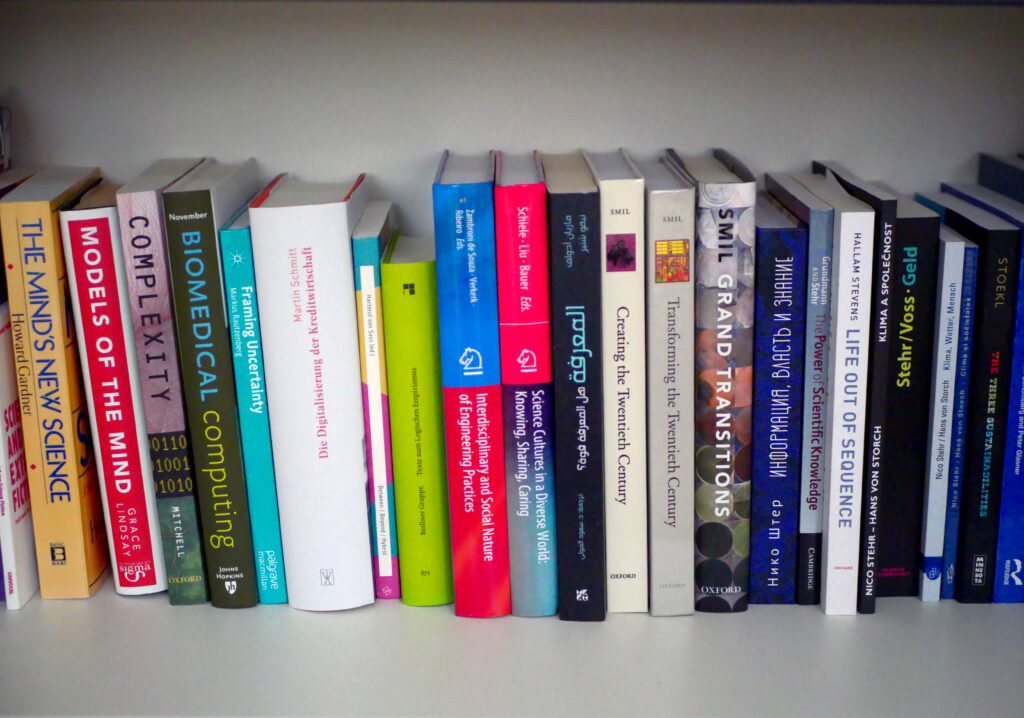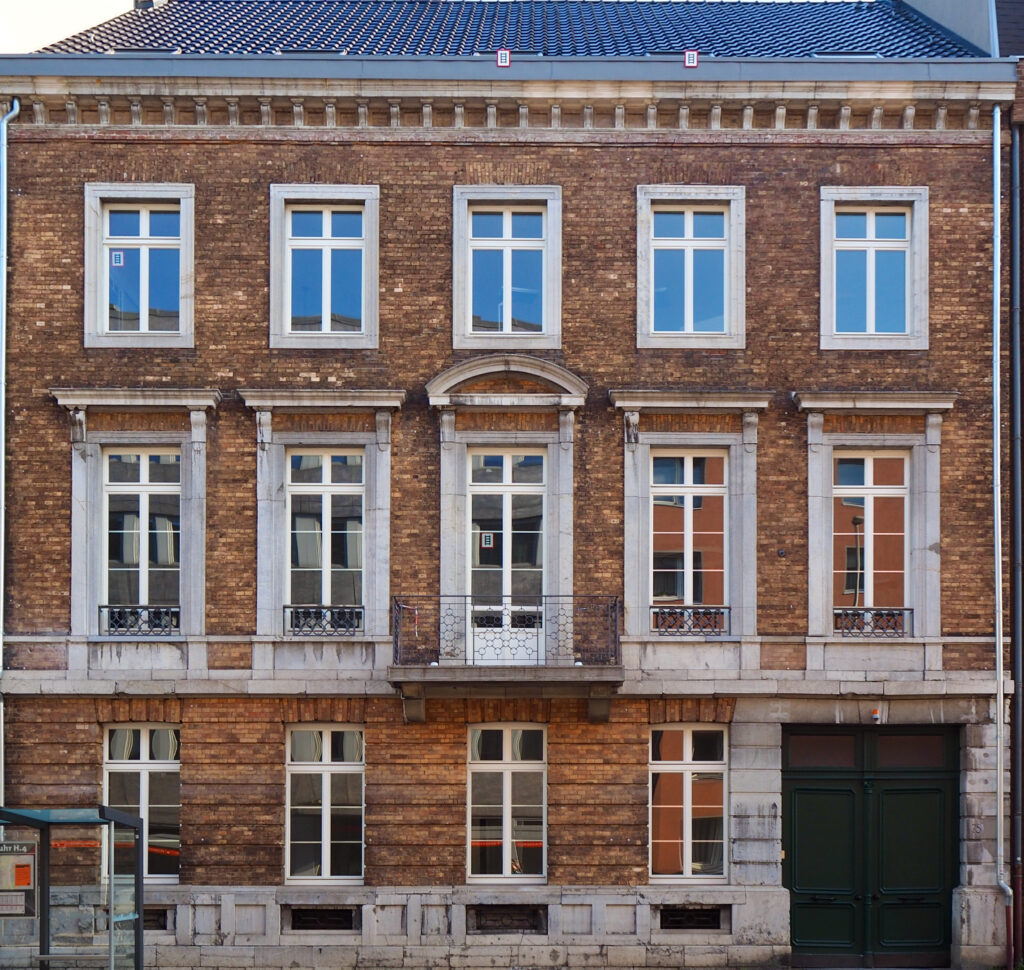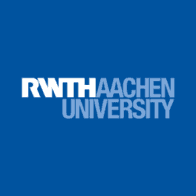The Käte Hamburger Kolleg: Cultures of Research (c:o/re) is dedicated to the manifold research cultures of the sciences, focusing on the relevance of shared features and differences, as well as on processes of transformation. By exploring emerging cultures of (transdisciplinary) research, we aim to develop new theoretical and methodological approaches for investigating scientific transformations. “Cultures of research” is to be understood on a global level. This means that questions of changes in scientific practice need to be examined in the context of the different institutional frameworks, even if induced by the same cause (e.g., the digitalization of society).
During the first funding period (2021-2025), c:o/re’s research focused on the topics of “complexity, lifelikeness and emergence,” “emerging computational and engineering practices,” “expanded science and technology studies,” and on “histories and varieties of science.”
Building on the work of the first phase, the fundamental research question for the second funding period (2025-2029) is how the transformation of research continues to reflect the diversity of research cultures and sciences, despite the universal and standardizing tendencies of digitalization and globalization. To this end, the central research concepts of “digitality/complexity,” “globality/varieties of science,” and “expanded science and technology studies” will be explored in three research lines until 2029.
The key objective is to develop an advanced theoretical framework to study “cultures of research” and to overcome the prevailing separation between philosophy of science on the one hand, and science and technology studies (STS) on the other. This is the unique contribution of the center to the national and international research landscape.

Thematic Fields 2025-2029
1. Digitality and Complexity
The digitalization of research cultures through big data, computer simulation, and other computational tools is now widespread, and artificial intelligence methods in particular have given digitalization a further boost in recent years. Yet, the design and use of digital cognitive methods vary greatly from discipline to discipline. This variety can be investigated by understanding digitalization as a strategy of situated complexity management. “Situated,” because the different disciplines are confronted with different issues of complexity. The focus of our interests is the tension that exists between the homogenization and the diversity of changes in research cultures linked to digitalization. This research line aims at analyzing the research-immanent aspects of the diversity of digital research cultures (also in contrast to classical research cultures) within the framework of a comprehensive theory of research cultures.
2. Globality and Varieties of Science
Despite local differences of scientific cultures, science is increasingly becoming a globalized institution. At co:/re we investigate the globalization of science as a situated process of cosmopolitization. This means studying how the global transformation of research cultures unfolds in a variety of local institutions and cultures aimed at furthering the production of scientific knowledge. Our main interest lies in exploring the tensions that arise between processes of cosmopolitization and diversification in the changes linked to the globalization of science. This research line analyzes the research-extrinsic aspects of the variety of scientific cultures as a contribution to a theory of cultures of research.
3. Expanded Science and Technology Studies
The central issue of c:o/re is a methodological reflection in science studies and the genesis of new scientific research methods for the field. The disciplinary situatedness of the diverse approaches to science studies has resulted in strong incompatibilities, especially between philosophical and sociological-empirical perspectives. The long-term goal of the center is to bring together these different perspectives and methods under the term “expanded science and technology studies” (expanded STS).
The overarching methodological focus is a result of the exploration of differential shifts in contemporary research cultures linked to the pressure of digitalization and globalization. This investigation requires an interdisciplinary research approach, and so the focus of the center on “cultures of research” requires the interdisciplinary collaboration with fellows from different disciplines, who bring can bring a variety of perspectives to investigate the research questions expounded above. The program of the overarching methodological focus aims to develop an interdisciplinary scientific research approach as a situated, historical, and comparative perspective in the sense of “expanded STS.” On the one hand, the development of the early philosophy of science and science studies will be examined from a historical perspective. On the other hand, methodological reflection will be used to analyze how the divide between the philosophy of science and STS can be bridged. Both lines of research are necessary to answer the central question of the research group: How can situated research cultures be examined intrinsically and extrinsically?
Thematic Fields 2021-2025
1. Complexity, Lifelikeness and Emergence
Reflection on the understanding of complexity in different research cultures focuses on analyzing the different concepts of complexity, the ability to grasp complex processual ties and their characteristics such as non-linearity, hierarchical networks, new concepts of causality, etc.
The life-like functionalization of systems and materials has added to the complexity science and technology: materials are made to react adaptively to environmental influences, computer architecture is designed neuro-morphically, organisms become producers of vital biomaterials. The trend towards life-like functionalization poses major challenges not only to science, but also to technology and society, as the “engineering turn” is releasing countless, unprecedented entities into the environment. As this ultimately affects fundamental questions of society, many and very different actors are understandably demanding a say, which requires an increase in the participatory complexity of current research in the form of transdisciplinary cooperation with civil society actors.
The topic of emergent phenomena includes questions such as what happens when life-like qualities are transcended and the technical-natural entities of the “engineering turn” actually become alive, intelligent or self-active and act accordingly? Will this lead to entirely new technological environments? How can such new environments be regulated and controlled? What role will humans play?
2. Emerging Computational and Engineering Practices
The central theme of the “engineering turn” not only has consequences for forms of knowledge and participation in research, but also changes the practices and concepts of “engineering” itself. In addition to traditional methods of computer-aided design, which are used in molecular biology as well as in architecture or mechanical engineering, machine learning methods are increasingly being used in the context of generative design. Establishing a new “science of engineering,” this has far-reaching repercussions that also extends into traditional areas of engineering itself (e.g. biologization of mechanical engineering, generative design of adaptive materials, etc.). The changing practices of “engineering” were explored on the basis of research cultures and their feedback with the classical practices of engineering.
3. Expanded Science and Technology Studies
One focus of the center is to reflect on our own research cultures and to further develop methods from the humanities and social sciences for an “expanded science and technology studies.” The methodological focus is on linking the philosophical and historical orientation of science and technology, with dominant sociological, ethnological and cultural approaches of science and technology studies (STS). The previously separate disciplines of philosophy of science and technology, history of science and technology, and sociology of science and technology are to be integrated and brought together.
4. Histories and Varieties of Science
The question of a possible “engineering turn” is not limited to the observable epistemic consequences for current and future science, but can only be meaningfully categorized in terms of its scope. This means that the transformation of science since the emergence of the technological sciences needs to be reflected in a decidedly historical perspective. Historical contextualization and specification are necessary to adequately understand the changes in the present. In addition, the international orientation of the center offered the unique opportunity to adopt a directly comparative cultural perspective onto analyses of the transformation of research cultures. The goal was to reflect historically on the “engineering turn” and to develop a contrasting perspective on the differences between “varieties of science” as manifestations of research cultures.
Art and Research
How can art, science, and technology collaborate to help us understand the complexities of our digital present and future? Over the past few decades, the cultures of computational science and scientific computing have reshaped these collaborations. Artists now use computational methods not only to explore science and technology, but also to co-create platforms, knowledge, software and models. At c:o/re, we explore artistic methods as valuable research methodologies in their own right. We investigate the boundaries between the expectations and practices of science, such as experimentation and knowledge production, and those of the arts, such as aesthetic value, intuition, and visualization. As these boundaries are crossed, the possibility arises for collective reflection on the knowledge generated by digital cultures and the effect of the digitalization of science on these societies.
Fields such as artistic research have already explored the boundaries of art and research by establishing long-term relationships between artists and technological and natural phenomena and by acknowledging artists as producers of knowledge. Conversely, technologies such as models and visual databases have emphasized the aesthetic aspects of science and technology. At c:o/re, we explore artistic research methods, research aesthetics, and art as research.
Research Environment
Located in the historical Stadtpalais of Aachen’s Theaterstraße, the center creates an innovative intellectual space for investigating the manifold research cultures of the sciences.
As part of RWTH Aachen University – a University of Excellence and one of the largest technical universities in Europe – the center’s location offers various possibilities for collaboration: with the different institutes in the Faculty of Arts and Humanities and beyond, with the Jülich-Aachen Research Alliance JARA BRAIN, and with the institutes in the German-Belgian-Dutch Region “Euregio” engaging in Science and Technology Studies (Universities of Liège and Maastricht).

Associated Research Groups

The center is embedded in a lively research context at RWTH Aachen University, which it enriches through its annual fellows and internal team.
These are the several associated RWTH research groups to which the directors of the center contribute in a variety of managerial and academic ways:
- Computational Science Studies Lab (CCS Lab), Chair of Theory of Science and Technology
- Living Labs Incubator (LLI), HumTec (DFG EXU, 2019 – 2027)
- Philosophy of (digital) Geology (DFG, 2022 – 2024)
- Society after Money – Simulation (Volkswagen-Foundation, 2018 – 2022)
- Discourses on Public Health Issues (DiPubHealth), Chair of Society and Technology (Bayer Foundation, 2021 – 2024)
- NeuroSys: Innovation processes and business model development, Chair of Management Accounting (BMBF, 2022-2022)
- Linguistics and Cognitive Semiotics Chair (RWTH Aachen University)

